Our fellows
Our fellows
Our Fellows are at the heart of what we do...
.....and it is in our Vision and Mission that Griffins:
- harness the experience and knowledge of practitioners working on the front-line;
- enable them to identify, explore and draw attention to specific issues relating to women and girls in contact with criminal justice;
- provide them with the opportunity and the capacity to undertake robust and rigorous research whilst remaining in the workplace;
- that through the use of qualitative research techniques, ensure the reality of the lived experience of women and girls is captured and heard;
- supports individual growth by encouraging new ways of thinking and developing new skills, broadening experience and understanding and increasing self-confidence;
- links them with fellow practitioners, academics and policy makers, providing the opportunity to influence and promote change, locally and nationally.
Now meet some of our current and past fellows......
They are displayed by the year they joined Griffins, with our most recent fellows at the top.

Tabatha O'Brien-Butcher
Date joined:
My background is in campaigning, specifically around women’s rights, sexual violence, and access to education for marginalised groups. I'm passionate about community organizing, and asset development so that communities and groups who often have their voices and experiences sidelined, can lead their own campaigns for change.
Over the past two years, I have worked for Shelter, the national homelessness and housing charity. I started on a Through the Gate criminal justice project, developing a peer mentoring programme to support people leaving custody.
I'm currently working on Inspiring Change Manchester – an eight year lottery funded programme led by Shelter, focused on changing systems for, and most importantly alongside, people experiencing severe and multiple disadvantage.
As part of my role on the programme management team, I supporting women who have experienced multiple disadvantages to develop a 'Women's Voices' movement, focused on creating pathways for women to get involved with the design and delivery of services - co-production.
In the words of one member of the Women’s Voices group, ‘There’s something stopping women from moving into co-production – having their voices heard and listened to. And services aren’t gonna [sic] move anywhere without those voices’.
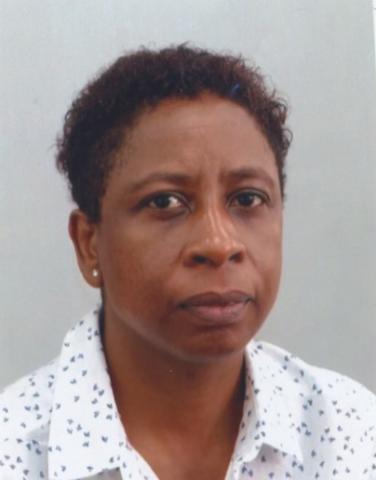
Sharon Hollingsworth
Date joined:
At present I am a prison officer, and have been for the past fourteen months. I previously worked in the transportation of those in custody, which I did for two years. In that time I transported a trans female and was aggrieved to witness the attitudes of staff towards her.
I aim to interview staff from a number of agencies, within prison, with a view to understanding their knowledge, attitudes and thoughts on Trans females in general and on those who are in prison.
I hope the research I am undertaking will offer staff, within the prison service, training in the care and management of trans females in prison. As well as that I hope that policy and attitudes will change for the better and that NOMS will look more closely into the housing of Trans females, with the view to preventing self-harm and suicides amongst trans females in prison.

Tracey McMahon
Date joined:
My career objective is to work with released female prisoners for a brighter future in the community.
I founded the SHE project in December 2013. It is a peer-led supported housing project which I established because of the experiences and problems faced by many women in the Criminal Justice System. The Project has 10 community-based, female-only units for up to four women per unit released from prison, where women have safe, secure accommodation of a high standard.
I aim to undertake further research projects to develop and safeguard communities for women who live on the margins of society because I believe that this will benefit not only them, but their children and the local communities in which they live.
I have written widely on women in the Criminal Justice System and I'm an active voice inside the system on offender rehabilitation. I have written for Criminal Law & Justice Weekly on issues surrounding female offenders and I have contributed to the popular "View From..." series (Criminal Law Blog).
I have contributed to Transforming Rehabilitation - Under the Microscope published by The Hallam Centre for Community Justice and published in December 2013 and I also edit the Tracey McMahon Blog
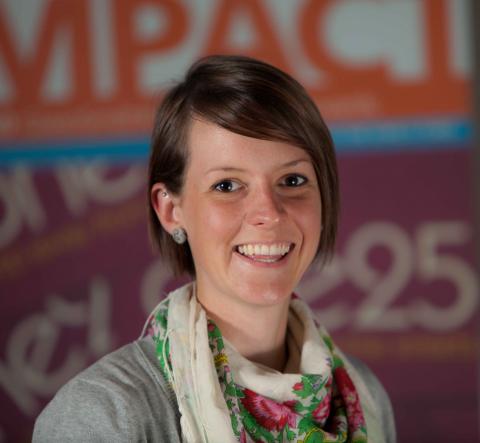
Hazel Renouf
Date joined:
Since 2010 I have been employed at One25, a Bristol based charity that reaches out to women trapped in, or vulnerable to, street sex work, supporting them to break free and build new lives away from violence, poverty and addiction. In my role as Criminal Justice Caseworker at One25, I support women through their involvement in the Criminal Justice System, both in custody and the community. I hold responsibility for supervising Conditional Cautions and Engagement & Support Orders given to women for loitering and soliciting offences within the Bristol area. I deliver training to professionals including police officers, magistrates, probation and prison staff. I have spoken at national and international conferences about supporting street sex workers in custody and the community and the use of Engagement & Support Orders.
I am a qualified Social Worker and Practice Educator with an MSc in Social Work from the University of Bristol and a BA in Law with Politics from the University of Manchester. I have a particular interest in relationship-based Social Work and have given lectures on this topic for the undergraduate Social Work degree course at the University of the West of England. I have experience working in Community Mental Health Teams, with trafficked women, young offenders and in residential facilities for women in mental health crisis and for young people experiencing self-harm.
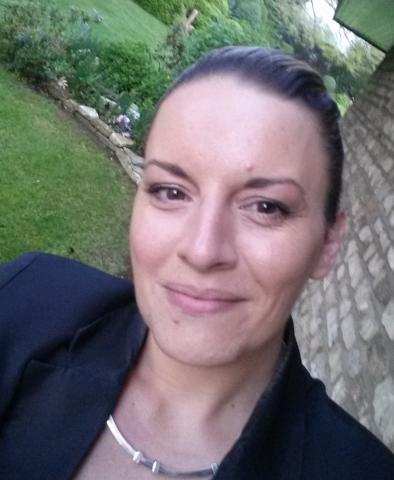
Kirsty Tate
Date joined:
I have a history of working in front line services from which my interest in working with sex workers developed, however I have no academic background as such, which meant that becoming a Griffins Fellow was a special personal achievement. I am currently an outreach worker to sex working women at ISIS women's centre in Gloucester.
Having previously worked in women's residential drug treatment services, I became aware of sex workers difficulties with disclosure of their sex working history which prompted the idea for my research, very little research exists linking disclosure and sex working, and unfortunately also little available material on possible systemic barriers or facilitators of disclosure for sex workers.
This is pertinent to me both in my previous role and my current, as sex workers already face multiple barriers to exit, and the opportunity to undertake this research allows me to uncover possible system changes that could support sex workers further to making substantial life changes. It has been a wonderful journey so far!
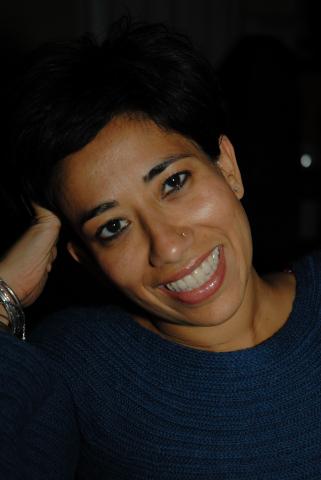
Maya Sikand
Date joined:
I am a civil liberties barrister at Garden Court Chambers specialising in public law as well as private law damages claims against public authorities, including prisons. I also have an appellate criminal practice that focuses on complex sentencing cases, trafficked victims and children and young people.
Before being called to the Bar in 1997, I worked for a number of years with two NGOs providing safe housing, support and assistance to women and children fleeing domestic violence and sexual abuse.
I am a Contributing Editor of the criminal text book Archbold Criminal Pleading, Evidence & Practice (Sweet & Maxwell); General Editor of the Blackstone's Guide to the Criminal Justice and Immigration Act 2008 (OUP, 2009) and author of ASBOs: a practitioner's guide to defending anti-social behaviour orders (LAG, 2006).
The idea for my research project grew out of a judicial review challenge I took on behalf of a pregnant mother in a prison who was refused an MBU place. They took her baby away from her at birth and placed him in foster care. She was utterly devastated. I challenged the fairness of the operation of the admissions procedure. She was finally reunited with her baby but it was a long, hard process. I am researching how fair / accessible that procedure is against the background of a low take up of MBU places / a high refusal rate. The MBU literature and research to date has not included interviews with women prisoners.

Gareth Hole
Date joined:
I have worked as a Probation Officer for National Probation Service in London since 2010. I am passionate about my job and understanding effective rehabilitative practices.
My Griffin’s Society Project will investigate Probation Officers’ assessments and practice with women who have perpetrated intimate partner violence against men. My initial interest in this was prompted by my participation in a pilot project which provided support to male victims whose partners were subject to Probation for offences committed against them; I noted that many of the referrals referred to the woman as the victim of domestic abuse, rather than the perpetrator. I wanted to explore more about why this was and the factors Probation Officers considered relevant to the perpetration of domestic violence by women.
Ultimately the goal would be to identify any challenges faced by Probation Officers in this line of work and the identification of good working practices.
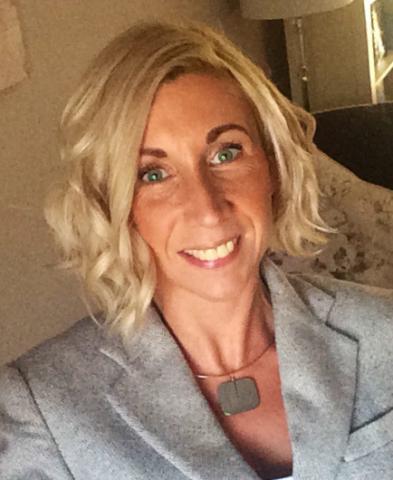
Tamara Pattinson
Date joined:
I am the Head of Reducing Re-offending at HMP & YOI Low Newton, where I have worked for the past 7 years. I recently completed a part time law degree, achieving First Class Honours.
I have significant interest in women within the Criminal Justice System, a fellowship with the Griffins Society has given me the opportunity to further develop this interest and improve outcomes for this group. My main driver is a real belief and strong opinion about women in custody and the suitability of custody for women who are mentally ill. Further it is based upon direct experiences whist working within a female prison where prison has been used as a place of safety and where women have had to be sectioned from weeks after being sentenced when, ultimately, it could have been done without the need to imprison first and more quickly.
On a personal front, I love to travel and explore the great outdoors. I am a keen runner and regularly participate in organised events to raise money for charity.

Jean O'Neill
Date joined:
I work for the Probation Board for Northern Ireland, Area Manager Band 6. My role includes the management of the Inspire Women’s Project, Belfast and co-ordinating the roll out of the INSPIRE model throughout Northern Ireland. I have previously worked as a Probation Officer for the Probation Board for Northern Ireland and the Merseyside Probation Service.
I returned to Northern Ireland to take up a management role in 1992. My areas of interest over the past 23 years include working in partnership with the community and other statutory sectors in the management of Car Crime in West Belfast. I managed and led two projects, the Turas Project in 1993 and the IMPACT Car Crime project in 2004. Both projects were recognised as successful in reducing car crime in the area.
Since 2004, much of my work has been dedicated to the development of services for women offenders. I have assisted the drafting of the DOJNI Strategy for the Management of Women Offenders and those vulnerable to Offending 2010-13. I have led the establishment of the Inspire Women’s Project and developed alongside colleagues in the voluntary and community sector, the current INSPIRE Model for the Management of Women Offenders.
This project was evaluated by London South Bank University 2010 and was positively reviewed by Dame Owers in the Review of the Northern Ireland Prison Service 2011. It was included in the Volunteer Now NI publication on working with women in the Criminal Justice System, 2013 and the Prison Reform Trust/ Soroptimist International publication ‘Transporting lives- reducing women’s imprisonment’ 2014.
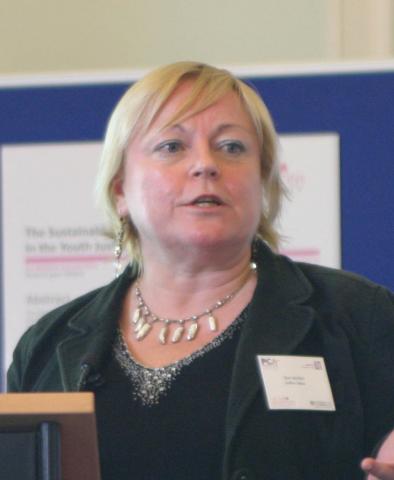
Sue Jordan
Date joined:
For the last 25 years I have worked in the probation service in a variety of settings including courts, youth service, prison, resettlement team and generic field work teams. I have been a Senior Probation Officer for 12 years and have managed teams in the courts and local prison. For 2 years I was seconded to the NOMS Women’s Team that aimed to divert women offenders from custody, promote awareness of this agenda and support the establishment of Women’s Community Centres in line with the recommendations of Baroness Corston’s report. I also helped set up and manage the centre in Leicester.
It was these experiences which led to my interest in exploring the impact of trauma on women’s compliance with the service and applying for a Griffins Society Fellowship to undertake research in this area.
I am currently managing a large city centre NPS team and am the Diversity Champion for the area. I remain keen to undertake more research and promote widespread establishment of trauma-informed environments.
Sue's paper can be found here.
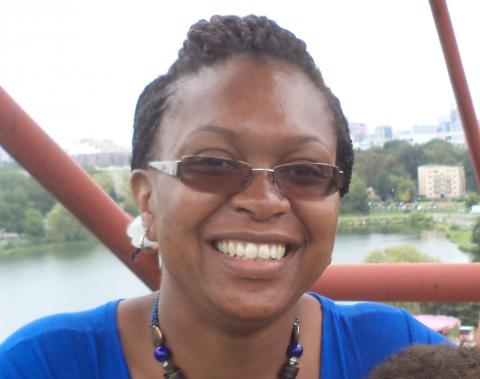
Shelly-Ann McDermott
Date joined:
I started my working life as a support worker for women and children survivors of domestic abuse and then as a mentor to young people in an inner city school. I joined London Probation in 2002, qualified as a Probation Officer in 2004 and worked in a variety of settings, including a Magistrates' Court and a public protection team.
I have been the Research "Single Point of Contact" within my local delivery unit and have sought opportunities to conduct and disseminate research to practitioner colleagues. Having completed my Applied Criminology master's dissertation on counterfeit DVD street sellers in 2010, my research article won the 2012 Probation Journal Best Paper Prize.
After completing my Griffins Society Fellowship, I conducted further research for the Sir Graham Smith Award. This work examined Multi-Agency Public Protection Arrangements (MAPPA) for potentially dangerous offenders within the community, which was published online in 2014 and within the Probation Institute's "Probation Quarterly" magazine in 2015.
I currently work for the London Community Rehabilitation Company and hold an exclusively female caseload across a cluster of East London boroughs. I am a member of the Probation Journal's Editorial Board which enables me to pursue my interests in evidence informed policy and practice.
Shelly's paper can be found here.
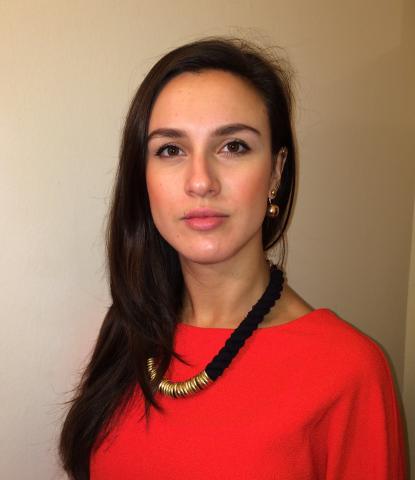
Jessica Southgate
Date joined:
My research was in response to increasing political and policy interest in the subject of girls, gangs and serious youth violence, and wider policy and practice developments in the women’s sector at the time. It developed from a personal interest in young women’s experiences of crime and violence, combined with evolving service delivery in this area at the charity I was working for at the time (Platform 51).
My work explored service delivery that aimed to meet the needs of girls and young women by hearing from those working in the field. Since completing the research I have spoken at a number events to different audiences working directly with girls and young women, where I have been able to share recommendations for service development.
Since completing the research I lead on participation with young people in the criminal justice system through the U R Boss project at the Howard League for Penal Reform, and am currently Head of Policy at 4Children as well as a Trustee for Women’s Breakout, the representative body for community based organisations offering gender specific community alternatives to custody for women.
Jessica's paper can be found here.
